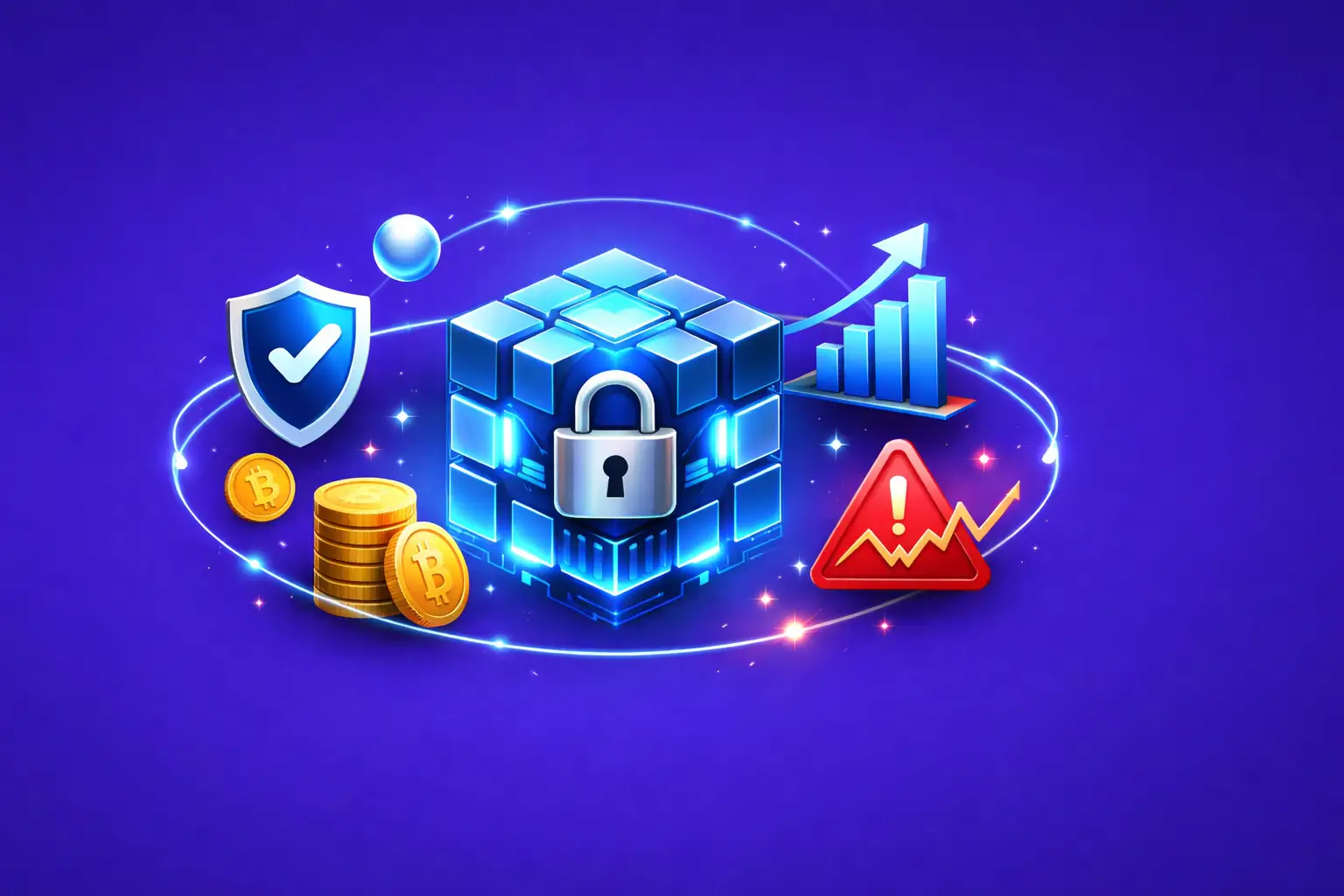Decentralized Identity is at the forefront of the Web3 Development revolution, fundamentally transforming how digital privacy is managed in today’s interconnected world. As the digital landscape evolves, the need for more secure and private identity management solutions has become paramount. Unlike traditional identity systems that are controlled by centralized entities, Decentralized Identity empowers individuals by giving them full control over their data. This shift is not only crucial for enhancing user privacy but also aligns with the decentralized principles that Web3 Development is built upon, promising a future where individuals can interact online without sacrificing their privacy.
What is Decentralized Identity?
Decentralized Identity represents a paradigm shift in how digital identities are managed, stored, and verified. Traditionally, identity systems rely on centralized authorities, such as governments, corporations, or social platforms, to store and manage user data. This centralized approach often leads to issues such as data breaches, identity theft, and privacy violations. In contrast, Decentralized Identity systems leverage blockchain technology to create a distributed, secure, and user-controlled identity framework. Users generate and manage their own identities, stored on a blockchain, and can selectively share their information with trusted parties without involving a central authority.
For those involved in Web3 Consulting Solutions, understanding Decentralized Identity is crucial for developing robust and secure digital ecosystems. Decentralized Identity allows for seamless integration with various blockchain-based applications, enabling users to access services across the Web3 ecosystem without compromising their privacy. This user-centric model not only enhances security but also fosters greater trust between users and service providers, making it a cornerstone of the emerging Web3 Development landscape.
How Decentralized Identity Transforms Web3?
Decentralized Identity is a transformative force within the Web3 Development framework, offering a new model of trust, security, and user empowerment. Traditional identity management systems, often characterized by centralized control and data silos, present significant challenges in terms of privacy and security. These systems are vulnerable to hacking, data breaches, and unauthorized access, putting users’ sensitive information at risk. In contrast, Decentralized Identity systems distribute control to individual users, ensuring that personal data is stored securely on a blockchain and only shared with trusted parties when necessary.
This transformation is particularly relevant for Web3 Consulting Companies that are pioneering new digital solutions. By adopting Decentralized Identity frameworks, these companies can create more secure and user-friendly applications that prioritize privacy and data protection. Decentralized Identity not only reduces the risk of data breaches but also enhances transparency and user trust, which are critical in the decentralized Web3 Development environment. As the demand for privacy-centric solutions grows, Decentralized Identity will continue to play a pivotal role in shaping the future of digital interactions.
Key Features of Decentralized Identity Explained
Decentralized Identity introduces several transformative features that distinguish it from traditional identity management systems.
-
Blockchain Technology
The core of Decentralized Identity lies in its use of blockchain technology. This creates a decentralized and immutable ledger that ensures identity data is secure and tamper-proof. By leveraging blockchain, the system prevents unauthorized parties from altering or misusing personal information, providing a robust foundation for digital identity management.
-
Zero-Knowledge Proofs
Another crucial feature is the implementation of zero-knowledge proofs. These cryptographic techniques enable users to verify their identity without disclosing sensitive information. This method enhances user privacy while maintaining the integrity of the verification process, offering a significant advantage over conventional systems.
-
Privacy Protection
Decentralized Identity places a strong emphasis on privacy protection. It minimizes data exposure during identity verification, thereby safeguarding user information from potential breaches. This approach represents a major improvement in protecting personal data compared to traditional identity management systems.
-
Scalability
The system is designed to be scalable, accommodating the increasing demand for secure and advanced identity solutions. This scalability ensures that as the need for digital identity protection grows, Decentralized Identity solutions can expand to meet those needs effectively.
-
Web3 Consulting
For Web3 Consulting Firms, these features are pivotal in developing cutting-edge solutions. By incorporating Decentralized Identity into their Web3 Development projects, firms can provide clients with advanced, secure, and scalable identity solutions that address modern privacy and security challenges.
-
Growing Demand
The demand for Decentralized Identity solutions is on the rise as organizations and users seek enhanced protection for their digital identities. This growing need underscores the importance of integrating Decentralized Identity into Web3 Development initiatives.
Enhancing Privacy in Web3 with Decentralized Identity
Privacy is a fundamental concern in the digital age, and Decentralized Identity offers a powerful solution to enhance privacy in the Web3 Development ecosystem. Traditional identity systems often require users to provide extensive personal information, which is then stored in centralized databases. These databases are prime targets for cyberattacks and are frequently breached, leading to the exposure of sensitive data. Decentralized Identity addresses this issue by allowing users to share only the minimal amount of information required for verification, thereby significantly reducing the risk of data breaches.
For Web3 Consulting Services, incorporating Decentralized Identity into their solutions is a strategic move to enhance privacy and security for their clients. By designing systems that use Decentralized Identity, these services can offer organizations a way to protect user data while maintaining the flexibility and usability of digital identities. This approach not only safeguards personal information but also aligns with the principles of Web3 Development, where the focus is on creating decentralized, user-centric systems that prioritize privacy. As privacy concerns continue to grow, the adoption of Decentralized Identity will become increasingly important for businesses and users alike.
Major Benefits of Decentralized Identity for Web3
Decentralized Identity has many benefits that are especially useful in Web3 Development. One of the biggest advantages is better privacy. It lets users control their own identity data, so they can decide what to share and who to share it with. This helps keep personal information safe and lowers the chance of data leaks or hacks. In traditional systems, users don’t have much control over how their data is used or shared.
For a Web3 Consulting Company, these systems also improve security because the identity data is stored on a decentralized blockchain. This makes it harder for hackers to steal or change the data. They also help companies follow data protection rules, which are becoming more important now. As Web3 grows, using Decentralized Identifiers (DID) will be key to building safe, scalable, and easy-to-use digital tools.
Improved Data Control with Decentralized Identity
One of the most compelling advantages of Decentralized Identity is the improved data control it offers to users. In traditional identity systems, users have limited control over how their data is stored, shared, and used. Centralized authorities often dictate the terms, leaving users with little recourse if their data is misused or compromised. With Decentralized Identity, however, users are empowered to manage their identity data directly. They can decide who has access to their information, under what conditions, and for how long, ensuring that their personal data is handled in a way that aligns with their privacy preferences.
This level of control is a significant selling point for Web3 Consulting Solutions that prioritize user empowerment and data privacy. By integrating Decentralized Identity into their Web3 Development projects, these solutions can offer clients a way to give their users more control over their personal data. This not only enhances the overall security of the system but also builds trust between users and service providers. In the Web3 era, where user trust is paramount, Decentralized Identity offers a powerful tool for fostering secure and transparent digital interactions.
Boosted Security with Decentralized Identity
Security is a top concern in the digital world, and Decentralized Identity provides a robust solution to enhance security in the Web3 Development landscape. Traditional identity systems, which rely on centralized databases, are vulnerable to hacking, data breaches, and unauthorized access. These security risks are exacerbated by the fact that centralized systems often store vast amounts of sensitive user data in a single location, making them an attractive target for cybercriminals. Decentralized Identifier addresses these security challenges by distributing identity data across a blockchain, where it is protected by cryptographic protocols and is only accessible to authorized parties.
For Web3 Consulting Services, the ability to boost security through Decentralized Identity is a key advantage. By incorporating this technology into their Web3 Development projects, these services can offer clients solutions that are not only more secure but also more resilient against cyber threats. The decentralized nature of Decentralized Identity ensures that even if one part of the system is compromised, the overall security of the identity data remains intact. This makes Decentralized Identity an essential component of any comprehensive digital security strategy, particularly in the rapidly evolving Web3 environment.
Why Choose Nadcab Labs for Decentralized Identity Solutions?
Nadcab Labs is a leader in Web3 Consulting Solutions, offering specialized expertise in Decentralized Identity and Web3 Development. With a deep understanding of blockchain technology and a commitment to innovation, Nadcab Labs provides clients with customized solutions that meet the highest standards of privacy, security, and user control. The team’s extensive experience in Web3 Development enables them to create solutions that are not only technologically advanced but also aligned with the unique needs and goals of their clients.
Choosing Nadcab Labs for your Decentralized Identity needs means partnering with a team that is dedicated to delivering top-quality results. Whether you are looking to enhance privacy, improve data control, or boost security, Nadcab Labs has the expertise and experience to develop solutions that exceed your expectations. With a focus on empowering users and protecting their data, Nadcab Labs is the ideal partner for organizations looking to stay ahead in the competitive and rapidly evolving Web3 landscape.






